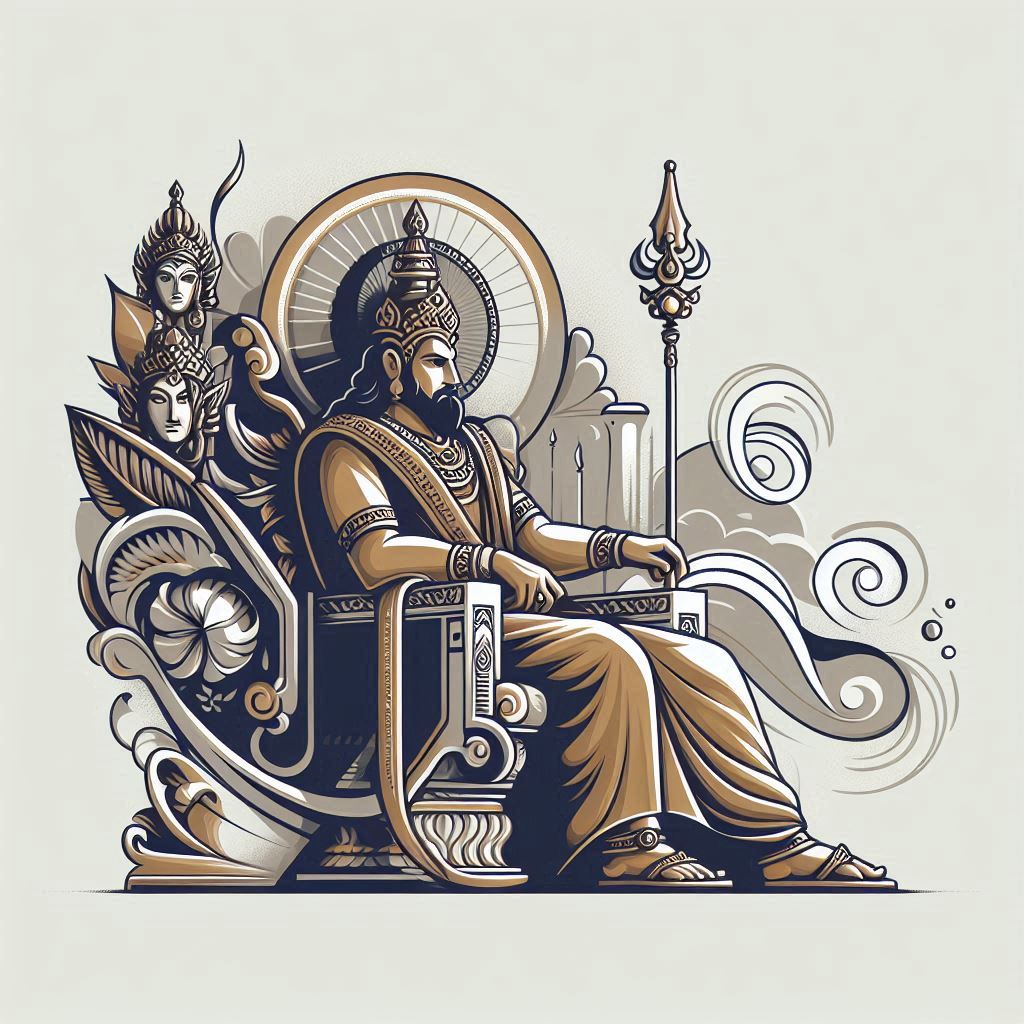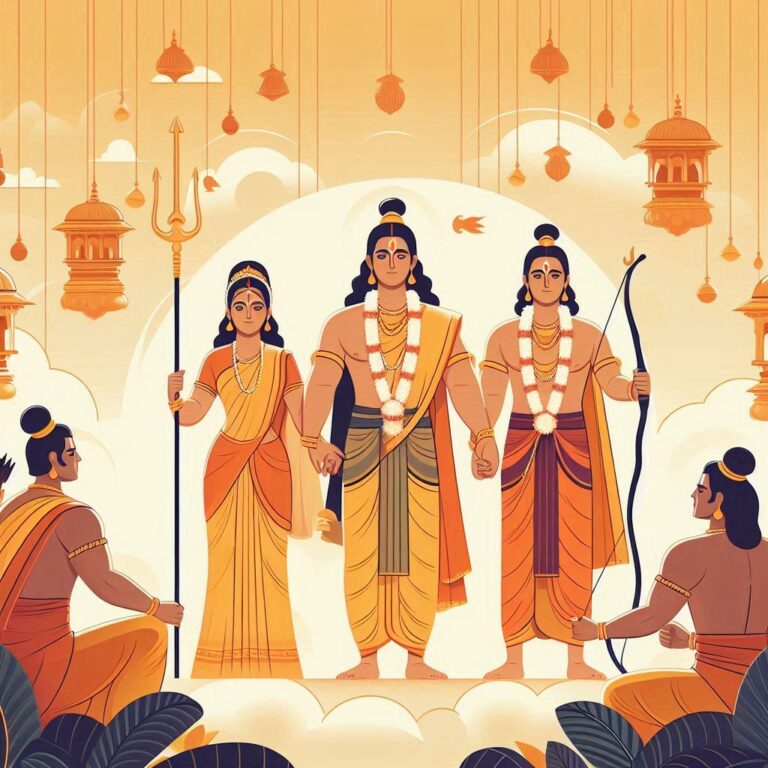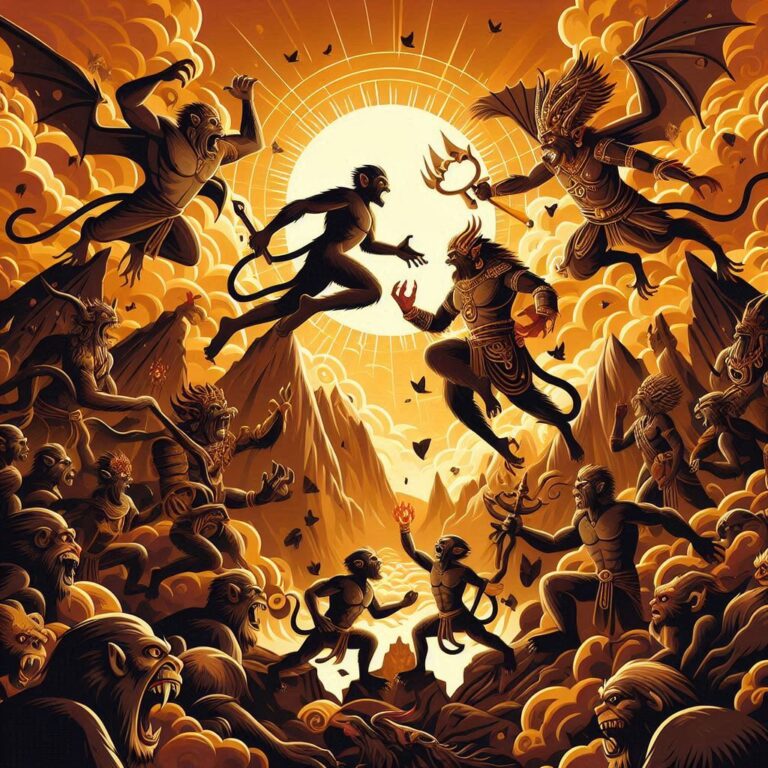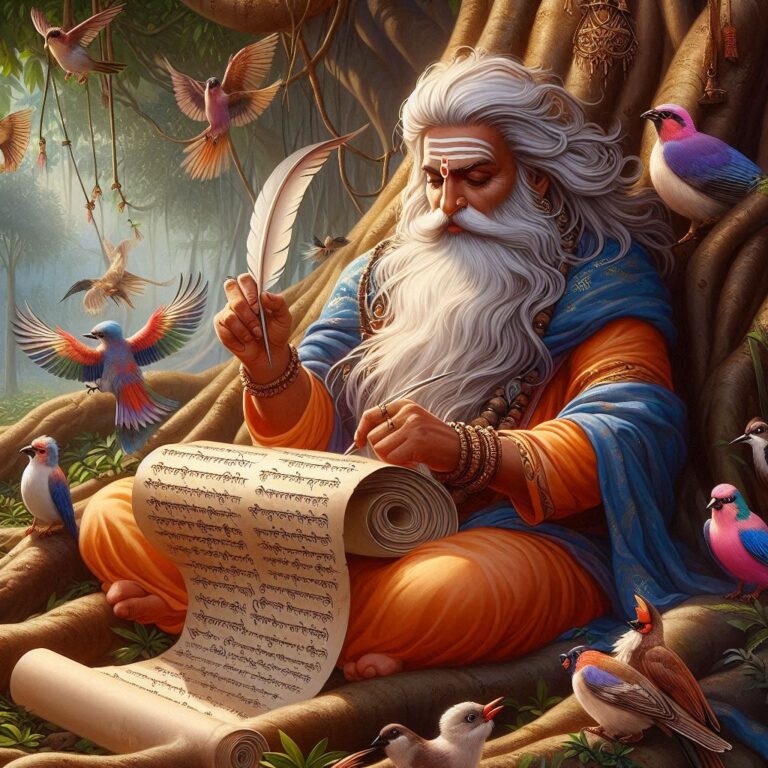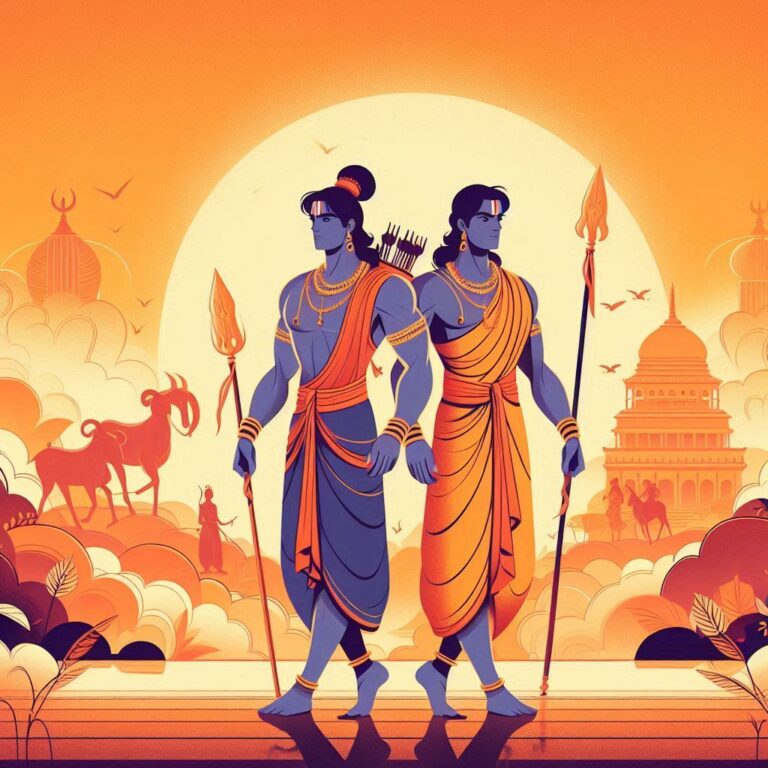The Consequences of King Dasharatha’s Choices in Ramayana
The Consequences of King Dasharatha’s Choices
When we delve into the epic narrative of the Ramayana, we come face to face with King Dasharatha, a character shrouded in complexity and tragedy. His decisions reverberate through the annals of time, influencing the lives of many and ultimately shaping the story of Rama, Sita, and the pursuit of dharma. Have you ever pondered the profound impact of a single choice? In this article, we will explore the multifaceted consequences of Dasharatha’s decisions, how they reflect upon leadership and morality, and what lessons we can glean for our own lives.
The Framework of Dasharatha’s Decisions
Dasharatha, the king of Ayodhya, is viewed as a man of principles, deeply committed to his duties. Yet, his choices were marred by emotional turmoil, personal desires, and the expectations of his kingdom. Imagine a mighty tree, deeply rooted yet swayed by the winds of change—in many ways, Dasharatha exemplified this metaphor. His initial decision to perform a sacrifice for an heir is profound yet sets the stage for a cascade of events.
Dasharatha’s Promises: An Oath That Echoed Consequences
One of the quintessential moments in Dasharatha’s life was when he vowed to fulfill the desires of his wife Kaikeyi, an act that would ultimately lead to tragedy. Dasharatha allowed himself to be swayed by Kaikeyi’s maternal instincts and desires, which she dressed in the garb of royal entitlement. This promise, though made with the best intentions, spiral in ways he could never have anticipated.
The Pain of Exile
At the forefront of Dasharatha’s choices is the heartbreaking exile of his beloved son, Rama. Imagine having to choose between your own son and the promises made to your spouse. The agony was palpable! Dasharatha’s decision to uphold Kaikeyi’s demand for Rama’s exile demonstrated unwavering duty—but at what cost?
“रामो राजा यदा स्याद् धर्मपतिव्रता च या।”
Rāmo rājā yadā syād dharmapativrata ca yā.
“When Rama reigns as king, the virtuous will thrive.”
This sentiment reflects Dasharatha’s belief in dharma, but where does that leave the individual at that moment? The king’s heart broke, leading to an impact that would ripple through generations.
The Role of Fate and Free Will
One might argue that Dasharatha was merely a pawn in the grand play of fate. The entire framework of the Ramayana suggests that destiny shapes every character’s arc. But does that absolve Dasharatha from accountability? This is where the concept of free will comes into play. His decisions, while influenced by external factors, were ultimately his to make.
The Divided Royalty
Dasharatha’s inability to balance love and duty among his wives led to a division within the royal family. His choices bred animosity and jealousy, leaving a legacy tarnished by strife. Instead of unifying, Dasharatha’s actions fragmented relationships—the essence of a ruler’s responsibility is to foster harmony.
In modern leadership, have you ever seen leaders falter due to favoritism? Such patterns ultimately lead to unhealthy dynamics. If only Dasharatha had recognized the broader implications of his promises before binding himself with vows.
The Ripple Effect on Ramayana’s Heroes
Dasharatha’s decisions don’t merely affect his life; they cascade down to his sons, particularly Rama and Bharata. Consider how Rama, the epitome of virtue, was forced into exile. Would he have become the righteous hero we revere if not for Dasharatha’s misguided choices?
The Cost of Righteousness
While Rama’s journey defined the essence of dharma, it is worth noting that Dasharatha’s choices underpinned that very path. His unwavering adherence to promises, despite their tragic outcomes, forces us to ponder: what does it mean to be a good leader?
This moment can be likened to a double-edged sword—where goodness can sometimes lead to unfavorable consequences. How often do we see decisions in leadership that bear heavy weights? Dasharatha’s life acts as a cautionary tale for anyone in a position of power.
The Lessons We Learn
As we dissect Dasharatha’s actions, several core lessons emerge. Each of these resonates with us, perhaps even reflecting our own personal struggles:
- Prioritizing Family: Every choice has a family impact. In the quest for duty, ensure that your family’s needs are not pushed aside.
- Balance Between Duty and Desire: It’s crucial to weigh the consequences of promises made in emotional moments. Upholding promises shouldn’t come at the cost of your values.
- Foresight in Leadership: Leaders should consider long-term consequences rather than fleeting desires or emotional commitments.
- Understanding Tragedy: Recognizing the pain of others helps us foster empathy and wisdom in decision-making.
The Heart-Wrenching Parenthood of King Dasharatha
Perhaps the most compelling aspect of Dasharatha’s choices lies in the agony of parenthood. His love for Rama clashed with the loyalty he owed to Kaikeyi. His heart, a battlefield of duty and affection, showed us that even the strongest can falter under emotional weight.
Images of Dasharatha, overwhelmed by grief and regret at the exile of Rama, paint a poignant picture. This father-son bond, layered with love and sacrifice, resonates deeply.
“कृपया धनुषभङ्गं श्रुत्वा सखिवरः सर्वं गृहीतवी न वेद।”
Kṛpayā dhanuṣbhaṅgaṃ śrutvā sakhivaraḥ sarvaṃ gṛhītavī na veda.
“Upon hearing the breaking of a bow, the friend took hold of everything, yet knew nothing.”
This verse captures the internal struggle of neglect in the face of responsibility. In our lives, are we truly aware of the implications of our actions?
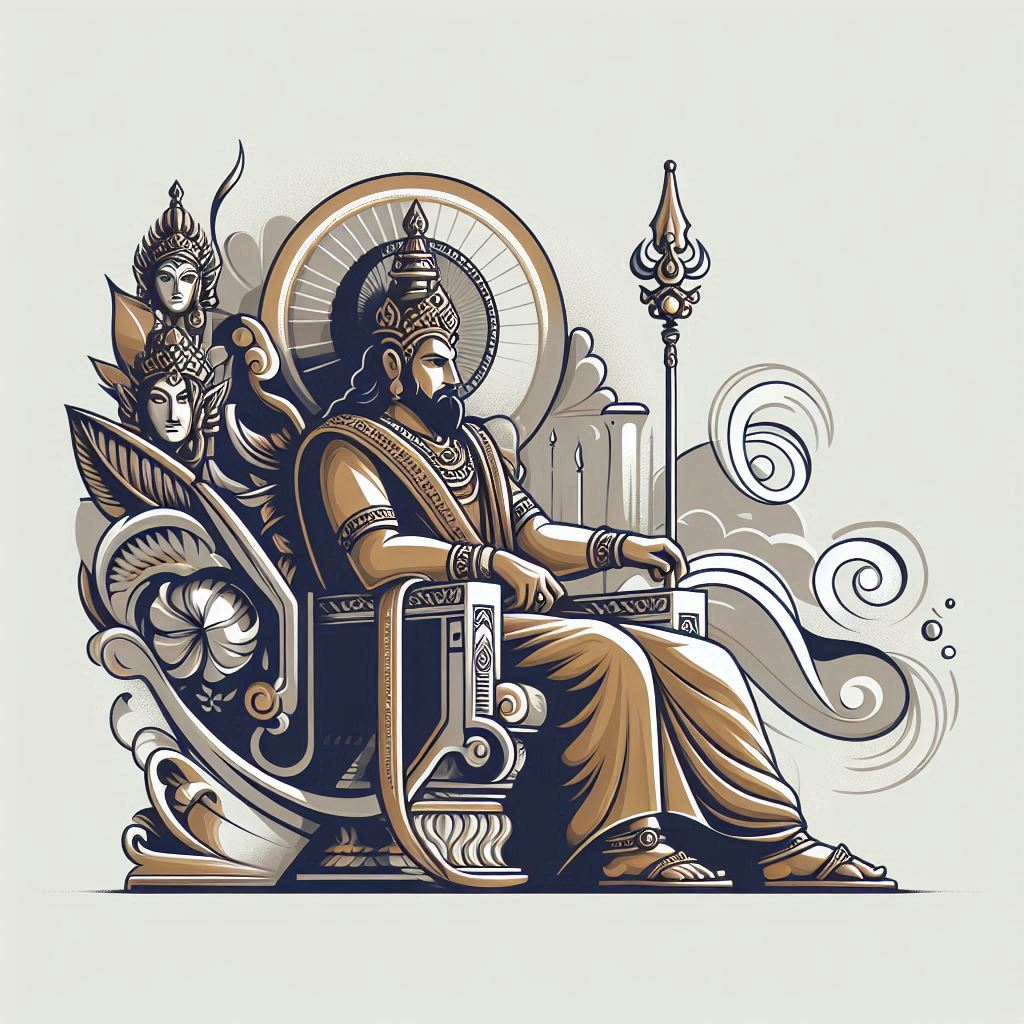
Conclusion
As we wrap up this exploration of King Dasharatha’s decisions, it’s clear that his story is more than just an account of events in the Ramayana. It’s a mirror reflecting our own challenges, struggles, and triumphs in leadership and decision-making. The impact of our choices can echo through time and touch countless lives. So, the next time you face a pivotal decision, channel your inner Dasharatha—reflect deeply, consider consequences, and strive for balance. After all, we are the architects of our own stories, capable of building legacies that thrive on wisdom rather than emotion.
FAQs
-
What were King Dasharatha’s most significant decisions?
His promise to Kaikeyi, which led to Rama’s exile, is often viewed as the most impactful choice. -
How did Dasharatha’s decisions affect his family?
His choices bred jealousy between his sons, especially between Rama and Bharata, leading to deep familial strife. -
What lessons can modern leaders learn from Dasharatha?
Modern leaders can learn the importance of balancing duty with personal relationships and the foresight in decision making.
-
Why is King Dasharatha often considered tragic?
His well-meaning decisions led to the heart-wrenching exile of his son Rama, showcasing the complexities of duty and love. -
How does the Ramayana illustrate the consequences of one’s actions?
The Ramayana serves as a timeless reminder that decisions—especially those made in emotional climates—can create far-reaching consequences, shaping destinies across generations.

